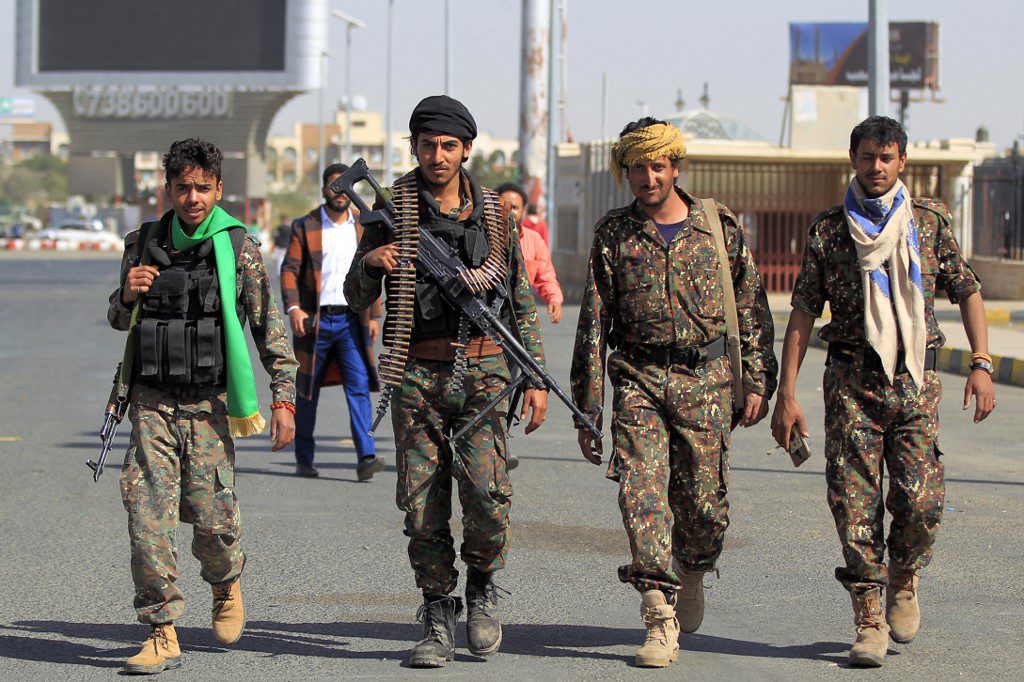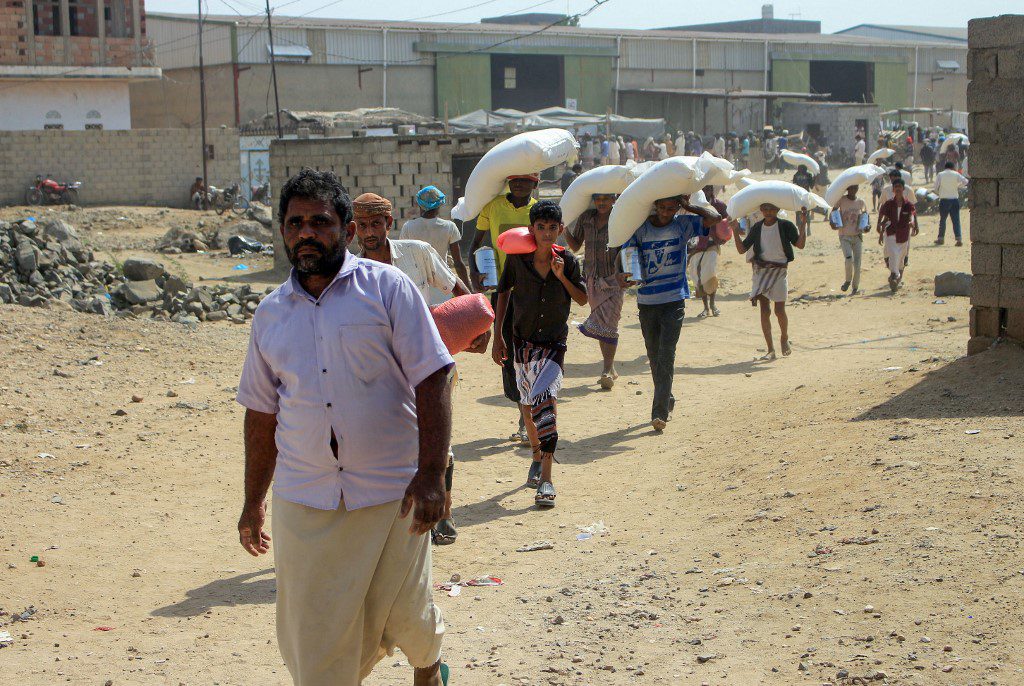
By: Sophia Akram
On Sunday, 10 January 2021, US Secretary of State Mike Pompeo — as one of the incumbent Trump Administration’s remaining acts — moved to designate Zaydi Shia Houthis as a terrorist organisation, sending outrage throughout the humanitarian community. A country said to be enduring one of the worst humanitarian crises in the world should be afforded measures making aid work easier rather than harder, said international NGOs. The move is supposedly meant to anger Iran, just before Joe Biden takes office. Rather than serve Yemeni civilians on the brink of famine, it could cause deeper strife in the region.
The Houthi group that now calls itself Ansar Allah and three of its leaders would be designated as a Foreign Terrorist Organization (FTO) and a Specially Designated Global Terrorist (SDGT).
“The designations are intended to hold Ansar Allah accountable for its terrorist acts, including cross-border attacks threatening civilian populations, infrastructure and commercial shipping”, Pompeo stated.
It could mean the group is blacklisted before US President-elect Joe Biden’s inauguration unless Congress moves to block the designation, which by law it has seven days to do. The prospect competes for the attention of those on Capitol Hill investing all efforts and time at the impeachment of US President Donald Trump after riots broke out at the US Capitol on 6 January 2021.
Pompeo’s rationale was that the Houthis had “led a brutal campaign that has killed many people, continues to destabilize the region and denies Yemenis a peaceful solution to the conflict in their country”, as he stated in his speech, making reference to the 30 December 2020 attack on Aden airport killing 26 people as a newly unified government arrived. While many have pointed fingers at the Houthis, the group has denied the attack.
The Secretary of State and former CIA director rolled out the FTO announcement with other supposed landmines for the new administration, including calling Cuba a state sponsor of terrorism and elevating relations with Taiwan, angering China. In another move to distance the US from Iran, Pompeo made remarks claiming an Iran-Al-Qaeda nexus despite Sunni-Shia relations that defines this alleged connection being typically at odds.
The conflict in Yemen has been raging since 2014, when Zaydi Shia Houthi rebels ousted the government after an unsatisfactory resolution to their problems post Arab Spring 2011.
An international coalition led by Saudi Arabia intervened in the conflict in 2015, supporting the Sunni Hadi government, escalating the violence and causing devastation to the Yemeni civilian population.

The Houthis, which formed the unrecognised National Salvation Government in Sanaa, have received some support from Iranian elements, but while commonly called a Saudi-Iran proxy war, many reject such a label.
“It is simplistic and inaccurate to say that the Houthis are a proxy group that reflexively do Iran’s bidding”, said Sina Toossi, a senior research analyst at the National Iranian American Council (NIAC).
“It is important to remember that the Houthis are a local political group that represent a large constituency in Yemen, namely the Zaydi Shia, which is an offshoot of the branch of Shiism practiced in Iran,” added Toossi, “This constituency has had its own grievances within Yemen and with respect to Saudi Arabia for years without any reason having to do with Iran”.
Prior to Trump’s presidency, American intelligence officials claimed Iran had been discouraging the Houthis from seizing the capital Sanaa and overthrowing the Hadi government, throwing doubt on how much control Iran has with regards to Yemen.
“Iran’s relationship with the Houthis has grown closer as a direct result of the Saudi war in Yemen”, said Toossi, “As the war has continued and the humanitarian crisis in Yemen worsened, Iran’s ties with the Houthis have deepened and the Houthis have developed a more sophisticated arsenal of weapons, including missiles developed inside Yemeni territory seemingly with Iranian assistance.”
The US’s support in the war has extended to selling weapons and providing logistical support to the international coalition fighting the Houthis, which makes the North American federation likely complicit in war crimes, according to the UN.
American officials have also previously gone on record suggesting a possible form of cooperation with the Houthis as the group has helped the US with Al Qaeda.
With regards to Tehran-Washington relations, Trump’s withdrawal from the 2015 Joint Comprehensive Plan of Action (JCPOA), have seen them deteriorate. The otherwise widely-endorsed deal was designed to urge limits on the country’s nuclear enrichment programme in exchange for lifting sanctions. Trump’s office instead used the agreement to impose further limits on the programme and reinstated sanctions to pressure Iran into compliance, a strategy that has failed to attain such concessions from the Islamic Republic.
Biden now wants to re-engage with Iran and revisit the US’s role in the Yemen conflict with a possible scaling back of support.
The Secretary of State’s last-ditch efforts aim to entangle the Democratic leader’s intentions. At the same time, former diplomats have cast doubt over the Houthis’ designation as terrorists saying it is bound to be perceived as politically motivated and could undermine credibility when it comes to US counterterrorism.
It could also make getting aid in the most precarious of situations even more challenging, despite Pompeo’s promise that licences would be issued to NGOs operating in the Houthi-controlled space where 70 percent of Yemenis live.
“The designation threatens to further shrink the space and access we need to deliver hu-manitarian assistance”, said Abeer Etefa, spokesperson for the UN World Food Programme.
The UN says 233,000 people have died as a result of the Yemen conflict, calling it the world’s largest humanitarian crisis as it edges towards famine.
“The humanitarian response does not operate in a vacuum: we work with banks, commercial traders and transporters, who in turn have links to global insurers and so on”, continued Etefer.
“The Houthis are likely to become more bellicose and make up any income they lose from taxing local markets by increasing tariffs on goods, pushing the cost of living to even more unsustainable levels for ordinary Yemenis,” wrote the International Crisis Group in a state-ment on their website.
It added that it could also lead the Houthis to further rely on Iran’s support while unlikely to bring them to the negotiating table.
“The international community has not been able to put viable and effective pressure on the Houthis because they don’t have any leverage over them”, said Baraa Shiban, a former member of Yemen’s National Dialogue Conference. Supporting the designation, Shiban believes could force the Houthis to compromise.
Some say though that calling the Houthis an SDGT would not touch them, the group not having much engagement outside of Yemen; it may also have little bearing on Iran.
Pompeo’s presentation of unsubstantiated links between the country and Al Qaeda at a National Press Club event was the second attempt to do so since 2017 when Pompeo authorised the declassification of bin laden files to try and locate a link between the terrorist outfit and Iran.
Despite great efforts to convey Iran and Iranian allies as American foes, they have been met with outrage among Congress members and should it not block the move, many will look to Biden for a reversal. Neglect to do so could deepen troubles in the region.


